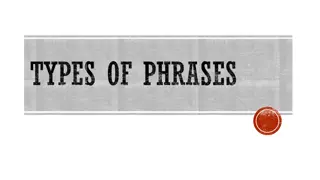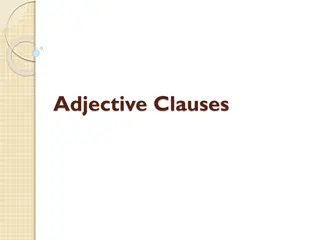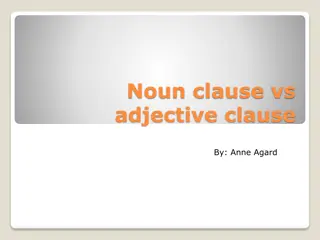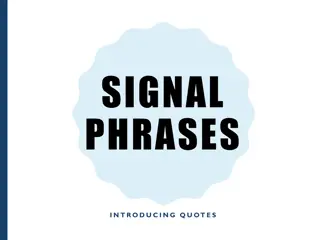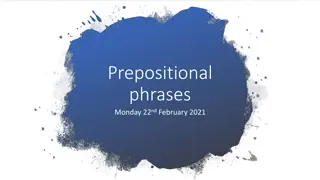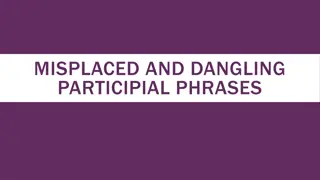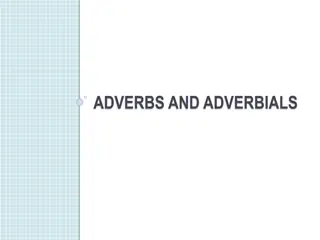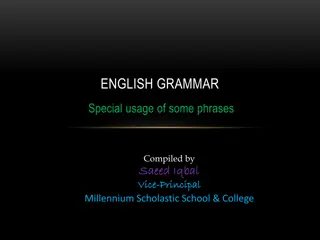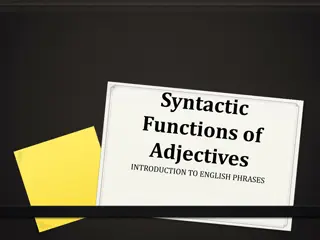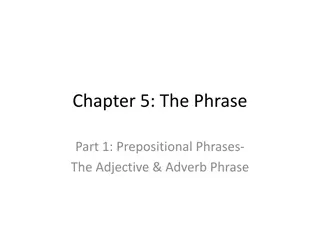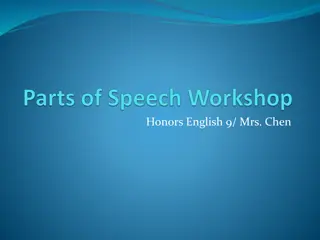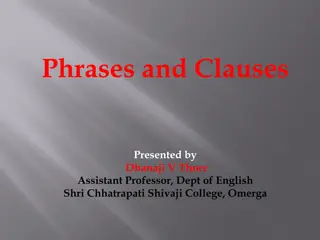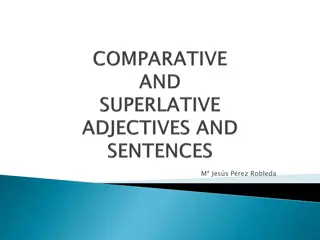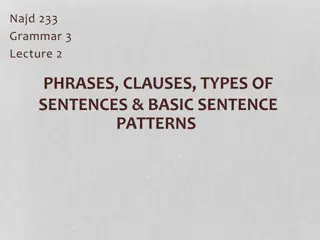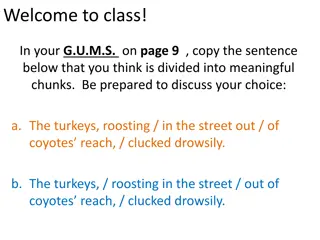Understanding Adjective Phrases in English Grammar
Learn about different types of adjective phrases in English grammar, including attributive, predicative, post-modifier, head of a noun phrase, verbless adjective clause, and exclamatory adjective sentences. Explore examples and functions of each type to enhance your understanding of how adjectives are used in language.
Download Presentation

Please find below an Image/Link to download the presentation.
The content on the website is provided AS IS for your information and personal use only. It may not be sold, licensed, or shared on other websites without obtaining consent from the author. Download presentation by click this link. If you encounter any issues during the download, it is possible that the publisher has removed the file from their server.
E N D
Presentation Transcript
(1) ATTRIBUTIVE (Pre- modifying nouns) 0 The beautiful painting. 0 His main argument. 0 My former friend. These are all examples of noun phrases that include an adjective phrase. In these cases, the adjective phrases are only the adjectives themselves, for the words that come in front of them are not adverbs.
(2) PREDICATIVE (They come after a linking verb be , become , etc. in the predicative function: complement of the subject or of the object) E.g.: 0 [I] feel awful. (complement of the subject) I consider [him] foolish. (complement of the object) 0 [That he needs it] is obvious. (complement of the subject, in this case, a subject clause) 0
(3) POST-MODIFIER E.g.: 0 The people (who were) involved were reported to the police. (Post-modifier: Reduced wh- clause) The men (who were) present were his supporters. (Post-modifier: Reduced wh- clause) 0 Anyone intelligent can do it. I want to try something larger. (Adjectives after indefinite pronouns) 0 0
(4) HEAD OF A NOUN PHRASE (Adjectives as nouns of a noun phrase. Often adjectives denoting nationalities or with abstract references) 0 The rich will help the poor. He s acceptable to both old and young. 0 You British and you French ought to be allies. 0
(5) VERBLESS ADJECTIVE CLAUSE (It generally refers to the subject) E.g.: Nervous, the man opened the letter. 0 The man, (who was) nervous, opened the letter. 0
(6) EXCLAMATORY ADJECTIVE SENTENCE E.g.: How good of you! 0 How wonderful! 0 Excellent! 0



